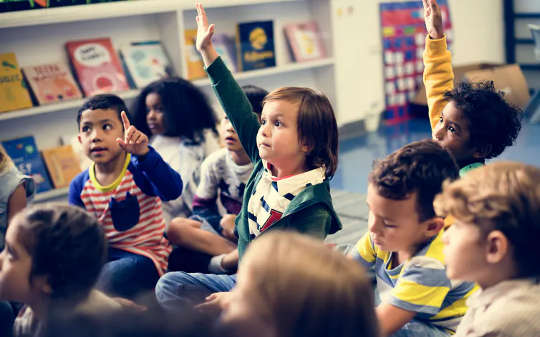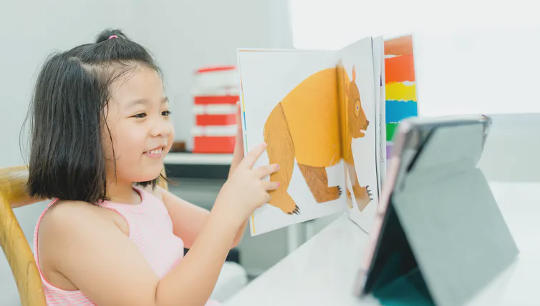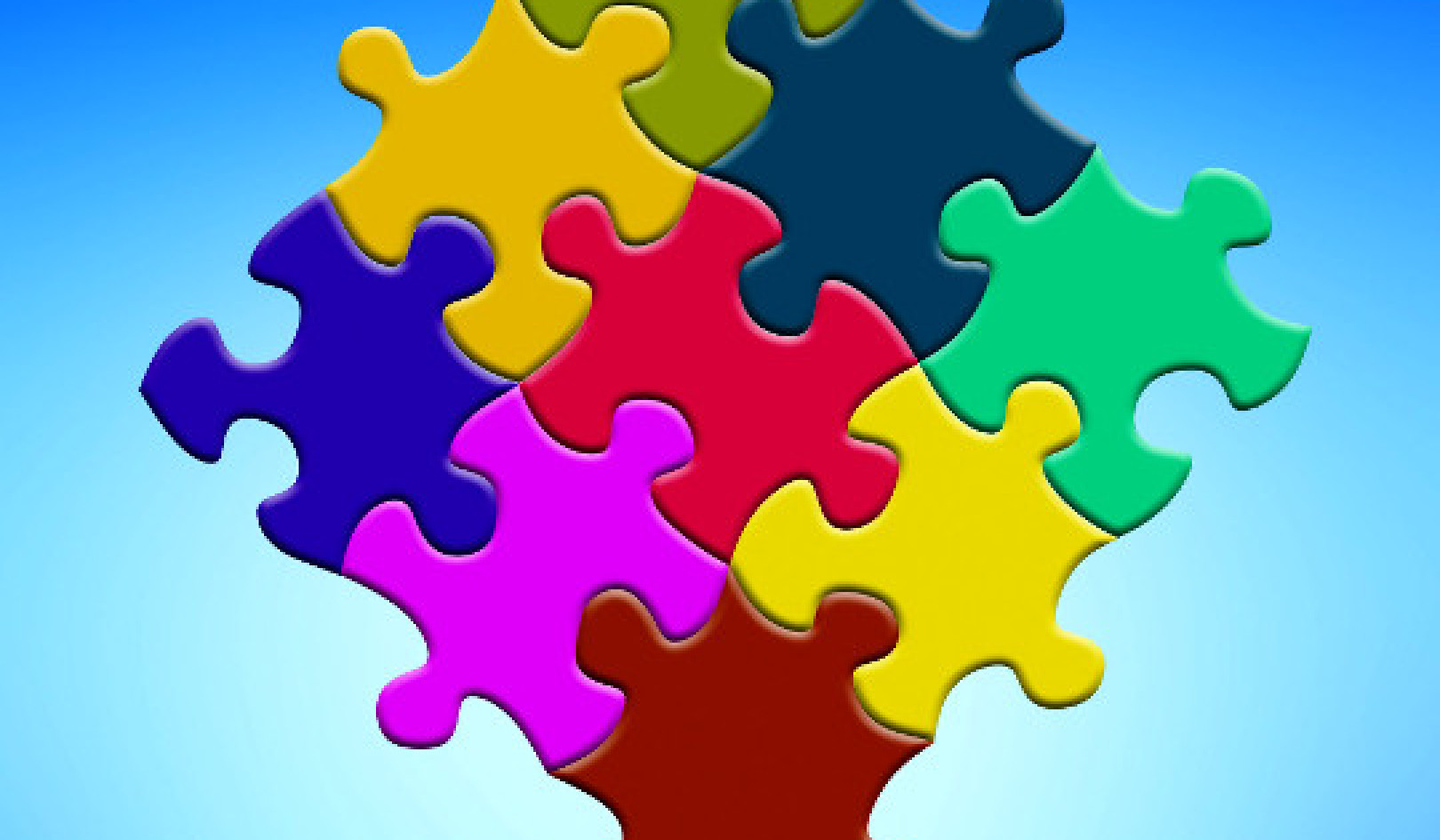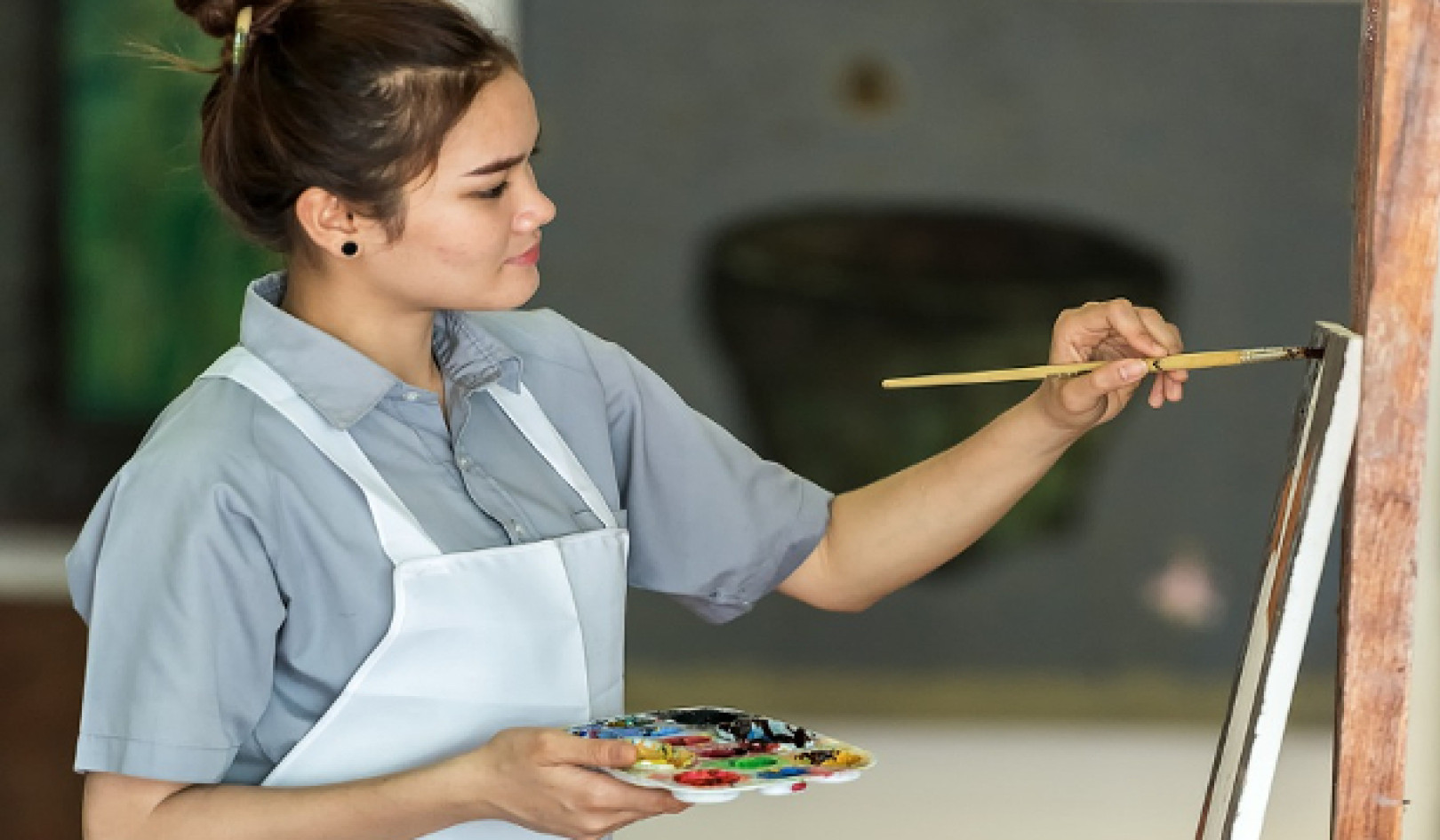
With some kindergarten children now participating in online learning, questions persist about how they will learn the competencies needed to help them flourish both socially and academically. (Shutterstock)
Since the beginning of the COVID-19 pandemic, the world has been anxiously waiting for it to end. While managing uncertainty and lockdowns, school boards have had to transition from in-person and classroom settings to offer online learning.
In this past difficult year, stress levels in many people have increased. Supporting children’s self-regulation is one focus of kindergarten education, including Ontario’s full-day kindergarten.
Self-regulation is how we manage the everyday stressors of life including all our energy and emotions. Developing self-regulation is central to a child’s capacity to learn and is critical for both social relationships and academic knowledge in years to come.
For children enrolled both in online kindergarten or in-person learning due to the pandemic, the need to continue to learn self-regulation has never been more important
 Children enrolled in both online and in-person kindergarten learning will benefit when trusted adults help them learn how to regulate their feelings. (Shuttertstock)
Children enrolled in both online and in-person kindergarten learning will benefit when trusted adults help them learn how to regulate their feelings. (Shuttertstock)
In the classroom
As a doctoral researcher specializing in self-regulation in kindergarten, I think of the many children who rely on the school environment to thrive. I am examining how teachers can promote self-regulation in Ontario kindergarten classrooms when they document various steps in a child’s play-based learning.
Documentation involves gathering children’s learning from multiple artefacts (such as notes, observations, photos, videos, voice recordings, work samples and interactions with children). Educators then analyze and interpret these artifacts in collaboration with children, parents and family members to gain insight to determine next steps for learning. This process is known as pedagogical documentation.
Educators support self-regulation in many ways in the classroom. Educators might provide a quiet space for children to be in if they need to get away from the crowded or noisy environment; they may lead children in grounding practices like deep breathing or other use other creative strategies tailored to their particular class. Their support for children’s self-regulation is also seen when they support children’s play-based learning including documenting children’s play-based inquiries — what interests children, and how they are processing questions and ideas.
Each classroom is unique with children who experience different stressors. Documenting children’s inquiries helps educators to understand each child.
This, in turn, allows them to help children with their self-regulating abilities. Adjustments can be made to the environment through attention to factors like lighting and classroom organization, or helping the child directly.
Janette Pelletier, a professor of applied psychology and human development, looked at the impact on full-day kindergarten versus half-day kindergarten; her research found that children in full-day kindergarten were more able to self-regulate compared to those in half-day kindergarten.
6 critical elements
Stuart Shanker, professor emeritus of philosophy and psychology at York University, is one of Canada’s leading experts and seminal authors on the topic of self-regulation. He has identified six critical elements that can be helpful for both children and adults:
-
When one is feeling calmly focused and alert, the ability to know that one is calm and alert.
-
When one is stressed, the ability to recognize what is causing that stress.
-
The ability to recognize stressors both within and outside the classroom (or current environment).
-
The desire to deal with those stressors.
-
The ability to develop strategies for dealing with those stressors.
-
The ability to recover efficiently and effectively from dealing with those stressors.
 Learning how to regulate stress means both recognizing what is causing stress and how to develop strategies to deal with it. (Shutterstock)
Learning how to regulate stress means both recognizing what is causing stress and how to develop strategies to deal with it. (Shutterstock)
When kindergarten is online
These six critical elements have been adapted in many kindergarten classrooms. However, with some kindergarten children enrolled in online learning, questions arise about how to support children during these unprecedented times.
The story of the child who cried during online learning went viral. We also heard about the teacher who was overly stressed and felt like a failure. Beyond this, some parents are juggling to put food on the table and to support their children while working from home.
Undoubtedly, there can be many stressors hindering children from learning. These may include the noise level in the home, difficulty accessing the internet, sensitivity to light and prolonged screen time or not having enough space in their learning area.
Being perceptive to supporting children’s self regulation means if such stressors are identified early, efforts can be made to respond. For example, parents could mitigate issues with noise by giving the child headphones to connect more directly with the teacher and peers online, or a quiet space to aid their learning.
Parents’ self-regulation
In Self-Reg: How to Help Your Child and You Break the Stress Cycle and Successfully Engage with Life, Shanker writes that how a parent regulates their own emotions and stressors is an invitation for a child: children are vulnerable to negative emotions that can drain their energy. Sometimes, it can be difficult or impossible for the child to become calm: when a child’s “emotional brakes” wear out, they can no longer get themselves to stop. When this happens at home (for instance, during an online class), children may express negative emotions.
Each child may require different strategies to manage their stress level. Stress is communicated through facial expressions, actions and tone of voice. Some might want a massage, a bath, music, drawing, outdoor time or may need to sleep in a calm environment. When children express negative emotions — what may otherwise be seen as acting out — adults are encouraged to look at children’s stress levels rather than seeing a behavioural issue. If adults approach the situation wrongly by giving a “time out,” or punishments, this may increase children’s stress.
Other tips to support children
Give your children a chance to reflect through writing, drawing or speaking at school and home. It is important to remember that self-regulation does not happen overnight.
Self-regulation takes practice and is a process.
For both parents and teachers, it is essential to listen to children and be the external regulator for them.
About the Author
Niluja Muralitharan, PhD Student, Education, Brock University
This article is republished from The Conversation under a Creative Commons license. Read the original article.
Books on Improving Performance from Amazon's Best Sellers list
"Peak: Secrets from the New Science of Expertise"
by Anders Ericsson and Robert Pool
In this book, the authors draw on their research in the field of expertise to provide insights into how anyone can improve their performance in any area of life. The book offers practical strategies for developing skills and achieving mastery, with a focus on deliberate practice and feedback.
Click for more info or to order
"Atomic Habits: An Easy & Proven Way to Build Good Habits & Break Bad Ones"
by James Clear
This book offers practical strategies for building good habits and breaking bad ones, with a focus on small changes that can lead to big results. The book draws on scientific research and real-world examples to provide actionable advice for anyone looking to improve their habits and achieve success.
Click for more info or to order
"Mindset: The New Psychology of Success"
by Carol S. Dweck
In this book, Carol Dweck explores the concept of mindset and how it can impact our performance and success in life. The book offers insights into the difference between a fixed mindset and a growth mindset, and provides practical strategies for developing a growth mindset and achieving greater success.
Click for more info or to order
"The Power of Habit: Why We Do What We Do in Life and Business"
by Charles Duhigg
In this book, Charles Duhigg explores the science behind habit formation and how it can be used to improve our performance in all areas of life. The book offers practical strategies for developing good habits, breaking bad ones, and creating lasting change.
Click for more info or to order
"Smarter Faster Better: The Secrets of Being Productive in Life and Business"
by Charles Duhigg
In this book, Charles Duhigg explores the science of productivity and how it can be used to improve our performance in all areas of life. The book draws on real-world examples and research to provide practical advice for achieving greater productivity and success.

























